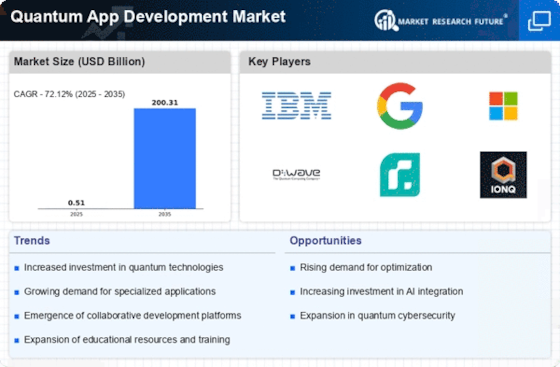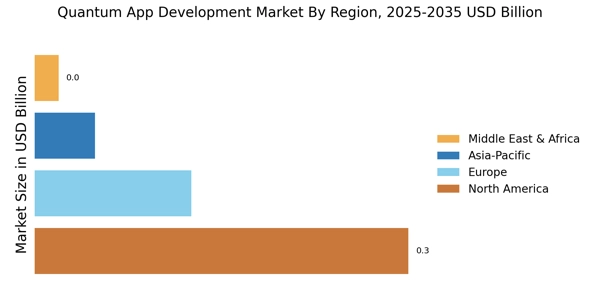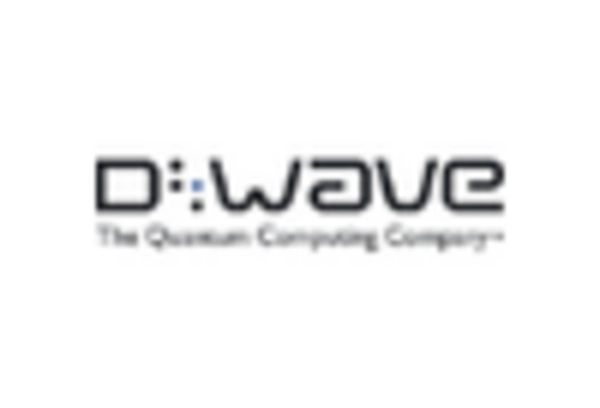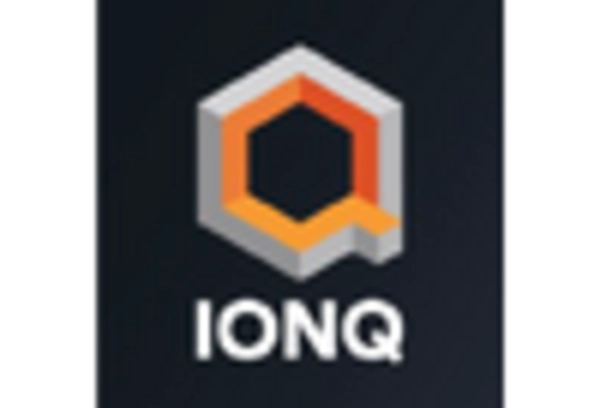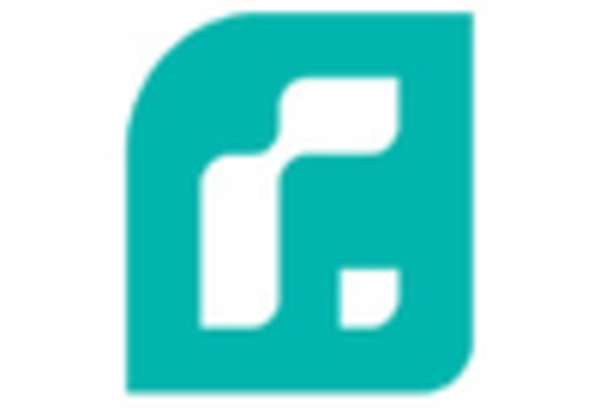Government Initiatives and Funding
The Quantum App Development Market is significantly influenced by government initiatives and funding aimed at advancing quantum technologies. Various governments are recognizing the strategic importance of quantum computing and are investing heavily in research and development. For instance, funding programs and grants are being established to support startups and research projects focused on quantum applications. This financial backing not only accelerates innovation but also encourages the establishment of a skilled workforce in quantum technologies. As a result, the market is likely to see an influx of new players and innovative solutions, further propelling the growth of quantum app development.
Strategic Partnerships and Collaborations
The Quantum App Development Market is witnessing a trend of strategic partnerships and collaborations among technology firms, research institutions, and academic entities. These alliances are essential for fostering innovation and accelerating the development of quantum applications. By pooling resources and expertise, stakeholders can tackle the inherent challenges of quantum computing, such as error correction and algorithm optimization. Notably, partnerships between tech giants and startups are becoming increasingly common, as established companies seek to leverage the agility and creativity of smaller firms. This collaborative environment is expected to enhance the overall ecosystem of quantum app development, leading to more robust and scalable solutions that can be deployed across various sectors.
Increased Focus on Cybersecurity Solutions
The Quantum App Development Market is increasingly focusing on cybersecurity solutions, driven by the potential of quantum computing to revolutionize data security. As quantum technologies advance, traditional encryption methods may become vulnerable to quantum attacks, prompting organizations to seek quantum-resistant solutions. This shift is creating opportunities for developers to create applications that utilize quantum cryptography and secure communication protocols. The demand for such solutions is expected to grow, particularly in sectors that handle sensitive data, such as finance and healthcare. Consequently, the emphasis on cybersecurity within the quantum app development landscape is likely to shape the future of secure communications and data protection.
Rising Demand for Advanced Computing Solutions
The Quantum App Development Market is experiencing a surge in demand for advanced computing solutions. As organizations seek to solve complex problems that traditional computing cannot efficiently address, the need for quantum applications becomes increasingly apparent. Industries such as finance, pharmaceuticals, and logistics are particularly interested in harnessing quantum computing capabilities to optimize operations and enhance decision-making processes. According to recent estimates, the market for quantum computing applications is projected to reach several billion dollars by 2030, indicating a robust growth trajectory. This demand is likely to drive innovation and investment in quantum app development, as companies strive to create applications that leverage quantum algorithms for superior performance.
Emerging Applications in Artificial Intelligence
The Quantum App Development Market is poised to benefit from emerging applications in artificial intelligence (AI). Quantum computing has the potential to enhance machine learning algorithms and data processing capabilities, leading to more efficient AI models. As organizations increasingly adopt AI technologies, the integration of quantum computing could provide a competitive edge by enabling faster and more accurate data analysis. This intersection of quantum computing and AI is expected to drive demand for specialized quantum applications that can address complex AI challenges. The potential for breakthroughs in areas such as natural language processing and predictive analytics may further stimulate growth in the quantum app development sector.


